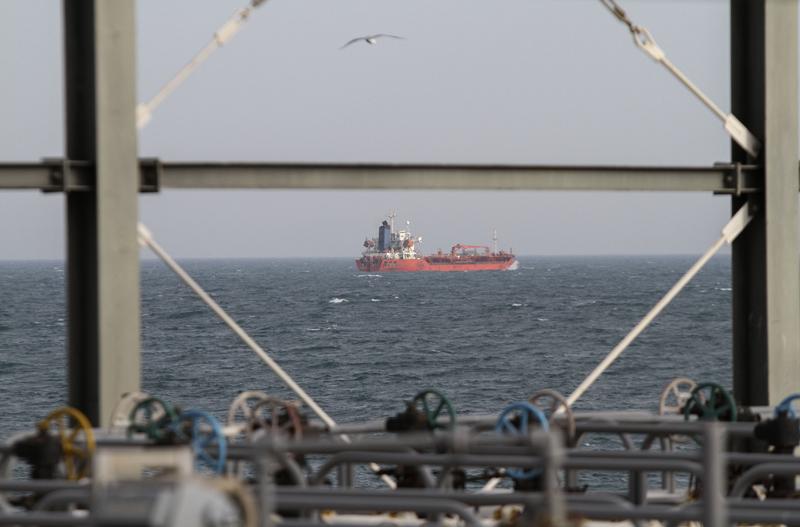Oil Prices Rise in Response to the U.S.-Iran Tensions in the Gulf - 5 minutes read
 Oil Prices Rise in Response to the U.S.-Iran Tensions in the Gulf
Oil Prices Rise in Response to the U.S.-Iran Tensions in the GulfA series of events have unfolded, which dates back to the U.S. President Trump’s decision to break the U.S. participation in the 2015 Iranian nuclear deal, which was signed by the U.S., Iran, China, the EU, France, Germany, Russia, and the U.K. The 2018 one-sided decision got the ball rolling into a possible U.S. military involvement, and all-out Middle East regional war, which would pull in Europe and Asia as well.
A series of mysterious attacks on ships unfolded, with no proof of responsibility, then a U.S. drone shot down by Iran, and finally, the U.S. ordered the seizure of an Iranian super-tanker in the Mediterranean Sea, carried out by the U.K. The world is waiting for the other shoe to drop.
Iran has made it clear it is going above the uranium-enriching guidelines, and this is obviously a tactic on their part to get negotiations started, with the goal of a final U.S.–Iran nuclear deal acceptable to both sides. Iran needs to be able to sell its oil, which is now brought to a standstill by U.S. sanctions, which Iran calls ‘economic warfare’.
Oil prices are sensitive to Arab Gulf tensions, and given the fact that most of the world’s oil passes through the Strait of Hormuz, any military escalation, or all-out war, would affect the global business community. In response, we have seen oil prices rise. Is this yet another U.S. engineered “Oil War”? It would appear, the recent rise in oil prices benefits everyone who has oil, except Iran.
Experts and those involved will all tell you the 2003 U.S. war on Iraq was all about oil. In an excellent piece byJuhasz, she wrote the following:
Former Federal Reserve Chairman Alan Greenspan agreed, writing in his memoir,
Then-Sen. and now Defense Secretary Chuck Hagel said the same in 2007:
Pres. Donald Trump is a consummate businessman, with very strong ties to the oil industry, and a great deal of his domestic business outlook is tied to oil prices. He is facing a re-election process in November 2020 and needs the American economy to be at its best, as votes for him will be cast depending on the economy. He is generally seen to be a man of peace; however, Secretary of State Pompeo, and National Security Advisor Bolton who are both seen as hawks, with a specific eye on Iran, as that is the goal of Pres. Netanyahu of Israel. The Trump administration, in general, can be characterized as taking their Middle East foreign policy directly off the table in Tel Aviv.
U.S. State Department spokesperson Judd Deere said Thursday that President Donald Trump spoke with Israeli Prime Minister Benjamin Netanyahu.
Higher oil prices tend to improve investment in petroleum-exporting countries in the Middle East while promoting opportunities for U.S. exports. However, they also tend to curb export to petroleum-importing countries such as China, India, Japan, and Europe. China and Russia are both urging the U.S. and Iran to act with utmost restraint, and are encouraging diplomacy to be used to calm the tensions.
The current tension between Iran and the U.S. has driven oil prices up.
The Brent oil price is not calibrated as a commodity, but rather now reflecting the risk of war.
The current ‘powder-keg’ tensions may last until after the 2020 U.S. election. Likely, military actions will not begin, but prices could remain high, or even go higher, which will be a benefit to many and creating more suffering for others.
Note to readers: please click the share buttons above or below. Forward this article to your email lists. Crosspost on your blog site, internet forums. etc.
This article was originally published on InfoRos.
Source: Globalresearch.ca
Powered by NewsAPI.org
Keywords:
Iran • President of the United States • Donald Trump • Joint Comprehensive Plan of Action • China • Germany • Russia • United Kingdom • United States Armed Forces • Middle East • War • Europe • Asia • Unmanned aerial vehicle • Iran • Aerial refueling • Mediterranean Sea • Uranium • Joint Comprehensive Plan of Action • Sanctions against Iran • Economic warfare • Price of oil • Arabs • Persian Gulf • Strait of Hormuz • Globalization • Oil war • Iran • 2003 invasion of Iraq • Chair of the Federal Reserve • Alan Greenspan • United States Senate • Chuck Hagel • President of the United States • Donald Trump • Businessperson • Petroleum industry • Business • Economy of the United States • United States Secretary of State • National Security Advisor (United States) • Bolton Wanderers F.C. • Iran • President of the United States • Benjamin Netanyahu • Israel • Presidency of Donald Trump • Middle East • Foreign policy • Tel Aviv • Spokesperson for the United States Department of State • Donald Trump • Prime Minister of Israel • Benjamin Netanyahu • Price of oil • Foreign direct investment • Petroleum • Nation • Middle East • Foreign trade of the United States • Petroleum • China • India • Japan • Europe • China • Russia • Iran • Iran • Price of oil • Brent Crude • Price of oil • Commodity • Risk • War • Welfare • Email • Blog • Internet forum •